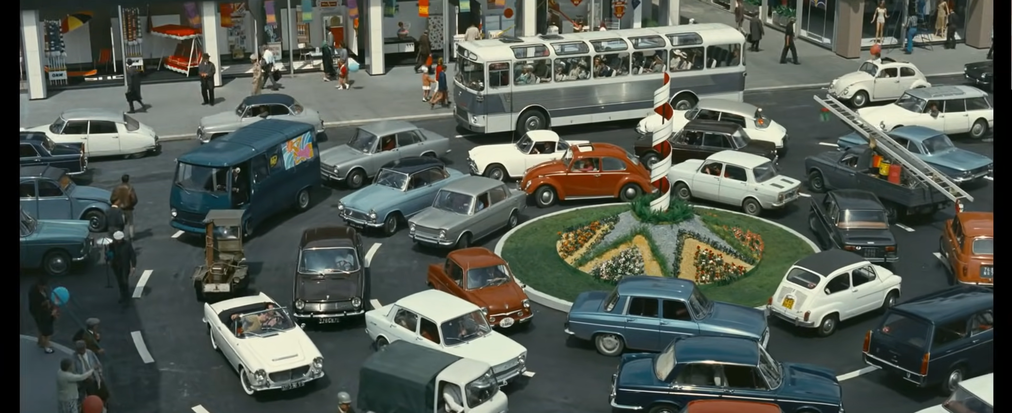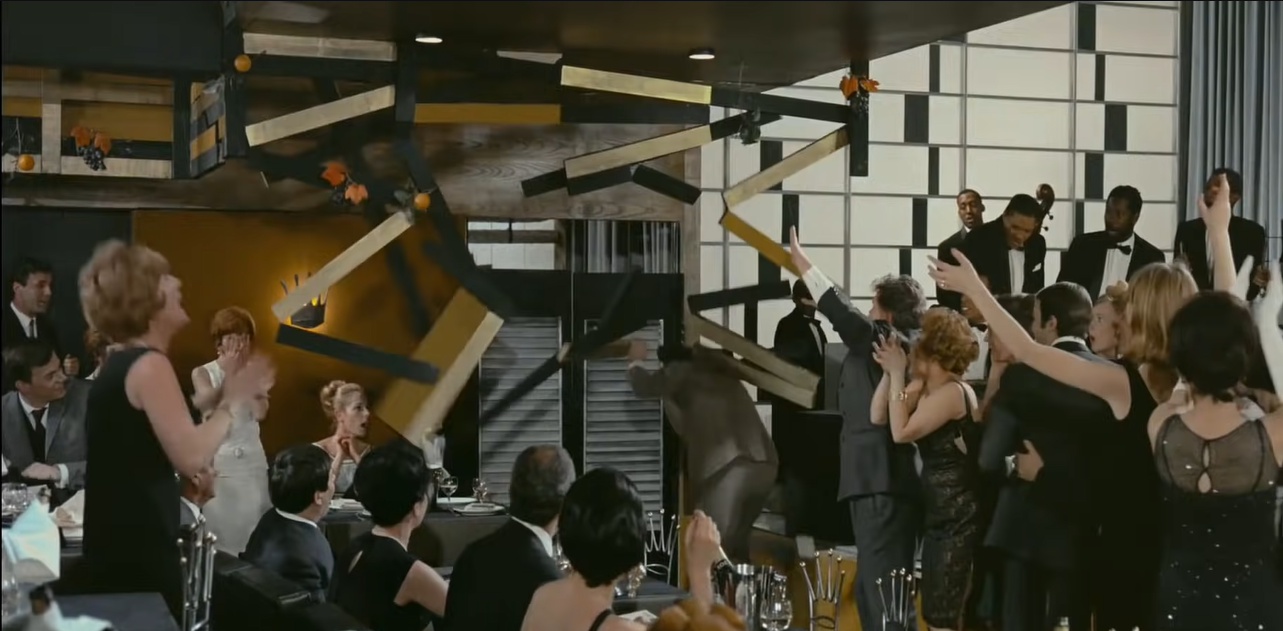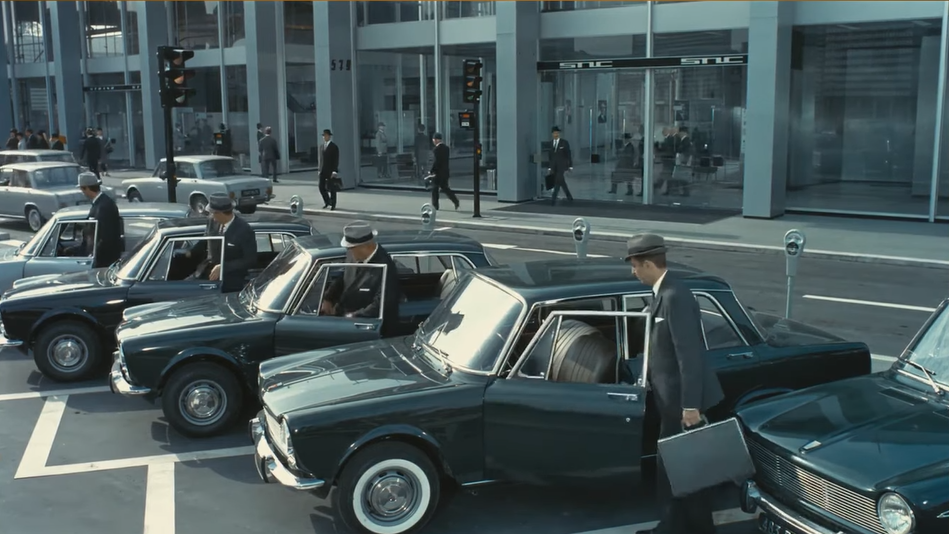The movie Play Time by director Jacques Tati is generally regarded to be his masterpiece. However one thing that a kind of puzzled me is that there were absolutely no black people in the movie besides the music players at the restaurant. Also, at 01:23:50, the only black man to walk into the restaurant was immediately told "no" by the staff at the restaurant, only to be accepted when he revealed that he was a trumpet player for the night. Was that a basically accurate reflection of, and also a sarcasm at some of the commonly seen attitudes of restaurants in Paris at that time? Was Paris at that time generally devoid of people of other ethnicity?
-
My meager research suggests that in 1967, there were over 2 million non-whites living in France. To not include black people in casting is hardly a new thing, though.– user7812Commented Jul 4, 2015 at 22:02
-
I have not found any other mention of this online, but in the movie Parade, Tati does a demeaning imitation (as a mime) of an almost certainly Black South African traffic cop. I have no choice but to assume that this is a racist portrayal. Looking of course for comments here. The film, while it has its moments, is not particularly good, nor is it widely watched these days, which might account for the scant mention of the issue.– Peter JayCommented Dec 3 at 18:20
2 Answers
Okay, I did some generic research, but I can't guarantee my conclusion is correct.
First of all in Paris there were around 2.3 million people in 1975. Slightly less in 1964-1967, but I can't find specific numbers. During the same period (1960) there were 2% Muslims (in a very broad definition of Muslim) in France. The non Muslim black community would have been relatively limited from what I read about 1980, but whether that applies to 1960 is no guarantee. Either way, assuming the middle and south African community hasn't changed too much we would be talking about 100.000 black people at most.
Now, to that you need to add that
- The black community was significantly poorer than the white community and
- That the black community had been far smaller just 10 years before that (Muslim population went from 0.55% in 1950 to 10% in 2010).
So I think the black community was probably slightly underrepresented, but probably not as much as you might think. Regarding the restaurant scene: That could have been perfectly 'normal'. To be honest, I am not that well acquainted with French history specifically, but considering the time period and general french mentality that is something that is far from a stretch and could've probably been seen in the majority of the western world.
No.
You seem to have completely misunderstood the movie.
Play Time (1967) is a complete satire and deliberately meant to not be a realistic depiction of Paris (or the world) in 1967 (or at any time). It's a futurist/dystopian/absurdist/surreal world.
The "Paris" depicted is deliberately mocked up to look more like New York City (or a generic "modern" American city) than actual Paris.
The brief scene you describe is a satirical take on racism. There was certainly racism in Paris 1967, but it was nowhere near as bad as depicted in that scene.
There were no lazy-Susan roundabouts in Paris 1967 (or now anywhere in the world):
Fancy restaurants did not routinely fall apart (with diners and staff continuing on as if nothing had happened) in Paris 1967 (or now anywhere in the world):
Not everyone dressed the same or drove the same car. Not everything was grey in Paris 1967 (or now anywhere in the world):



